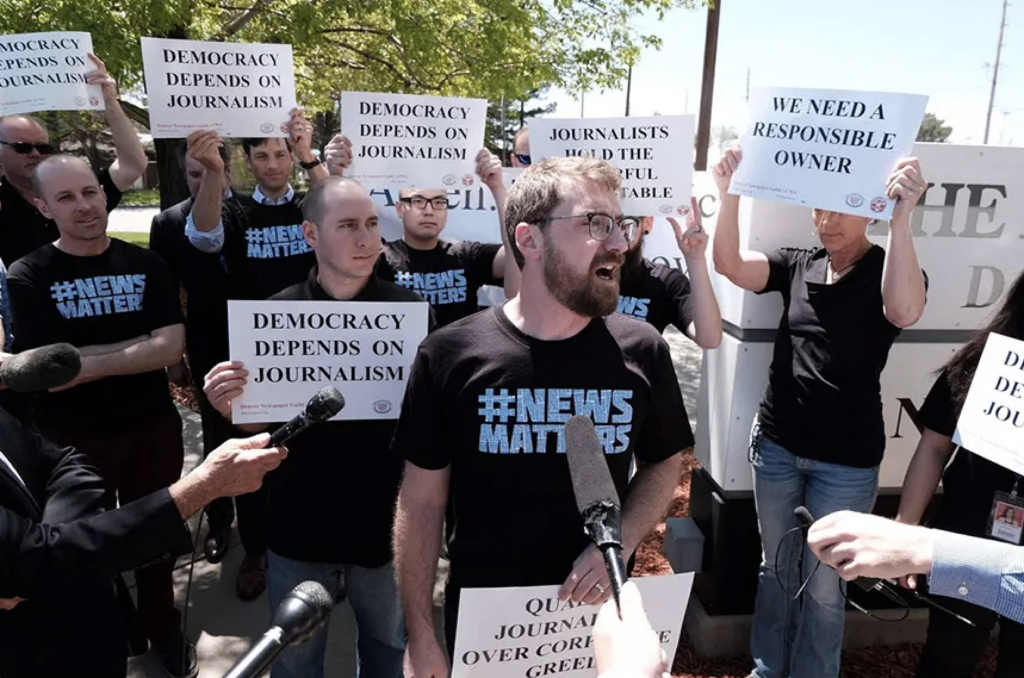No JCPA: the government should not determine what a news outlet is—or restrict our ability to link to facts
The following statement can be attributed to Evan Greer (she/her), Director at Fight for the Future:
Fight for the Future strongly opposes the Journalism Competition and Preservation Act (JCPA). The bill would force tech platforms to carry and pay for links to articles from outlets the government designates as news. This expansion of copyright and imposition of a link tax is so extreme that even the Copyright Office recommended against it, saying that it “would raise significant policy and Constitutional concerns.” Expanding copyright in this way harms the free flow of information by “protecting” things like facts, or even links to facts, from being shared without paying first. Additionally, having the government determine what is and what isn’t news is a dangerous precedent.
JCPA would make journalism more reliant on big tech revenue than ever before, aligning the interests of covered news sources with the least ethical actors in the information space. These concerns were raised when similar legislation passed in Australia. Already many in the US are concerned about corporate influence in what stories journalists at mainstream outlets are allowed to cover. This legislation creates an even firmer business incentive for journalists to avoid stories that hurt big tech revenue, because those stories would also hurt the revenue of their publications.
Journalists have been instrumental in holding big tech accountable, and cementing disincentives for the continuation of that practice in law would be a disaster for our democracy and for human rights online.
In another gaffe, the bill claims to limit itself to smaller publishers by excluding any outlet with over 1,500 full time employees. Unfortunately, by denying the reality of how journalists and their support staff are frequently employed today, this language provides a simple avenue for any publisher to be covered. For example, if it is not already staffed by independent contractors, a larger outlet could simply transition more journalists out of work as full time employees. We cannot imagine how a bill that dis-incentivizes full time employment and benefits for journalists would lead to better quality journalism in the future.
JCPA may also have disastrous unintended consequences for the spread of disinformation, hate, and discrimination against marginalized communities online. There are provisions in this bill that would essentially force big tech to display content that meets certain government-defined criteria. It contains what amounts to a blueprint for bad actors to get around content moderation and strongarm major social media platforms like Facebook to not only amplify lies—but to pay for those lies. In this scenario, an anti-abortion or anti-gender affirming healthcare outfit could form dozens of nonprofits and fundraise by launching JCPA-covered campaigns with false health information. Platforms would have to both carry and pay for such drivel.
Some of the biggest beneficiaries of this bill are hedge funds and wealthy families who can take advantage of the “must carry” and “must pay” provisions to push their own points of view regardless of the quality, accuracy, or relevance of their news. The “anti-retaliation” provisions in the bill mean that even if a platform discovers that government-classified news outlets are running a disinformation campaign, any attempts to moderate that content would open them to accusations of anticompetitive conduct. In fact, most of the editorials and OpEds supporting JCPA have come from papers owned by the hedge fund Alden Global. Alden is known for slashing jobs and shuttering papers, gaining massive control of local news markets in states like Minnesota and sparking protests from employees at the newsrooms they gobble up. Alden would benefit significantly from the JCPA passing.

JCPA is not a competition bill. It will harm local, independent journalists as well as human rights online, and we do not support it. Fight for the Future demands that JCPA is not included in a package with competition bills we have vigorously supported, like AICOA and OAMA. Such inclusion would be an insult to the civil society groups that have championed these bills that will actually improve competition and society.

